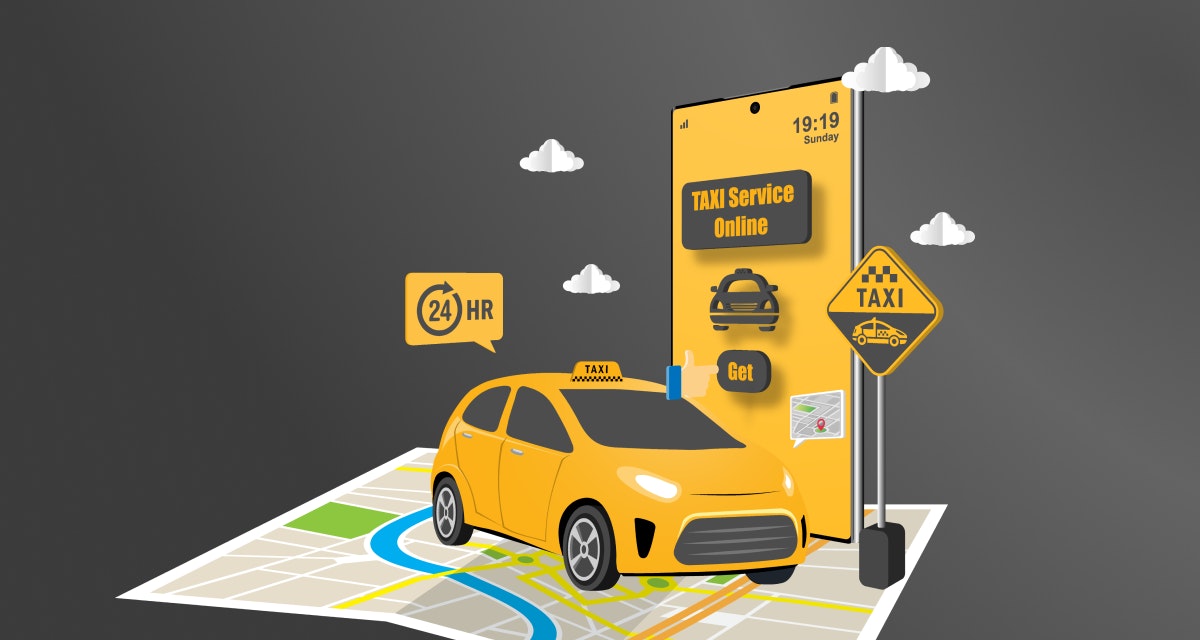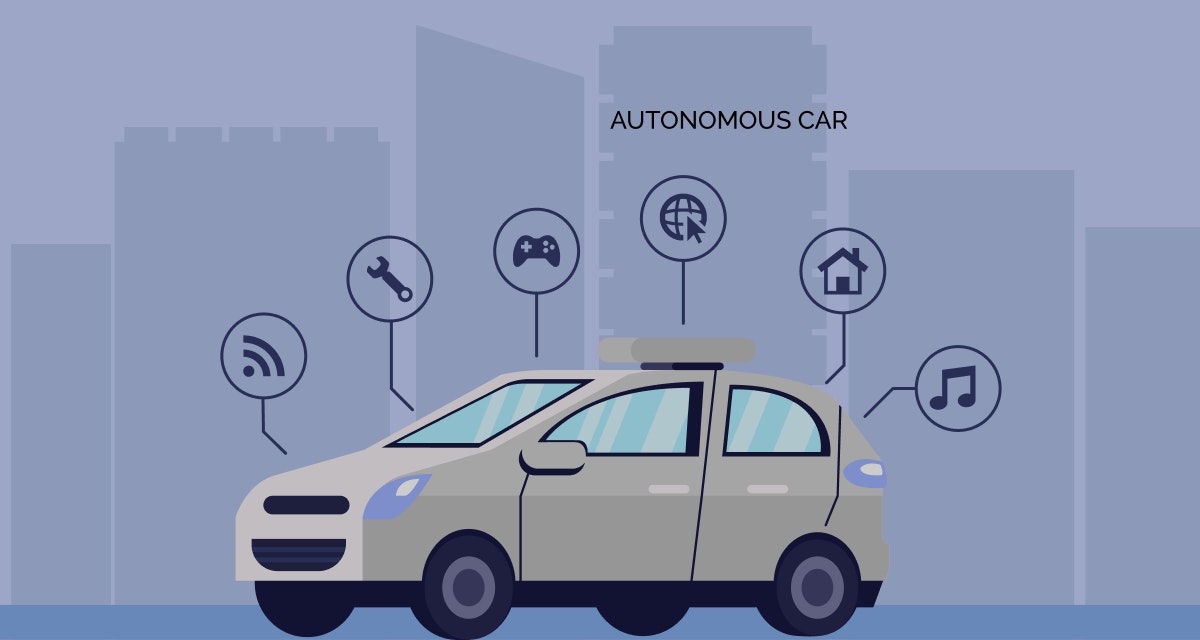AI and Blockchain are essential to ensuring efficient SCM. From driving greater automation and bringing scalability to increasing the connectivity across supply networks and improving traceability in commodity movement — the two technologies can create a better experience for both the suppliers and end-customers. This article breaks down the benefits AI and Blockchain bring to the table — minimizing the SCM pain points.
The pandemic has undoubtedly disrupted the regular chains of supply. As economies restart, it is more important than ever to supply goods and services securely and quickly.
According to Business Wire, the global SCM market size is projected to touch $37.41 billion by 2027 — growing at a CAGR of 11.2% from 2020 to 2027. In the past year, delivering a quick response to customer demands has become a mandate for 30% of supply chain professionals.
But a combination of consumer expectations, international complexities, and varied routes to market creates significant challenges across the supply chains.
To survive (and thrive in) the competition and ensure qualitative progress, businesses must invest responsibly in supply chain management (SCM).
AI is the future of business.
We have heard that a million times, and it is true for managing supply chains. As per an IDC report, half of the supply chains already undertake Artificial Intelligence application development for long-term demand forecasting and planning. Top organizations mainly spend $17 million on average for their SCM operations. More than 50% of G2000 manufacturing companies are believed to start relying on AI for their SCM initiatives before 2024.
Blockchain: the backbone of digitized supply chains
It is important to leverage AI in the supply chain. However, combining Blockchain technology with smart contracts to program business logic can dramatically improve the efficiency with which goods move, and limit exploitative behaviors — leading to cost savings. As a result, the global blockchain supply chain market will grow to $3272 million by 2026.
Challenges faced in SCM
Even when organizations resort to a data-driven approach to enhance the efficiency of their supply chains, data is not the only driver of effective SCM. Other factors such as cost control, technological advancements, and meeting compliance companies play a huge role. For instance, rising fuel prices to transport commodities by any medium, increasing cost of raw materials, and high labor expenses often lead to increased costs throughout the supply chains. Sometimes logistical complexities creep into the supply chain. For example, eCommerce sites want to ensure fast last-mile delivery. Traditional wholesalers wish to have extensive storage facilities for stronger inventory control. That might be too difficult to ensure every time.
When finished products must meet safety compliance regulations demanded by consumers, it could delay deliveries due to the lack of processes. Plus, siloed data and a lack of analytical visibility make reporting and business intelligence difficult to improve supply chains. Procurement of materials may be easy, but that does not guarantee delivery 100% on time, especially with varied shipping time frames and time zones.Suppliers, clients, and customers across geographies and time zones require careful coordination. But, unfortunately, that often leads to lousy stakeholder management.
With technological advancements changing the world as we see rapidly, it is challenging to keep up with the market. Logistics companies might not be able to adopt new technologies quickly. In a nutshell, if supply chain companies want to reform the way they move around commodities and ensure timely delivery, blockchain and AI applications are the answer.
How do AI and blockchain enhance supply chain management?
From the time of product pickup to the time it reaches the end user— all of it can be tracked end-to-end through AI and blockchain. The latter, in fact, also has a permanently saved digital ledger, which is error-free and safe for holding transactions. Organizations can digitize physical assets and create a decentralized transactional record for greater visibility. SCM can thus eliminate shipping delays, reduce fraud and errors, and improve management. Now let us understand their benefits in detail.
Most used blockchain technology in supply chain
1. Ethereum
- Offers robust smart contract capabilities, enabling automation and trustless transactions.
- Key Use Cases: Verifying product authenticity, enabling transparent and automated payments.
2. Hyperledger Fabric
- A permissioned blockchain ideal for enterprise use, with privacy and modularity.
- Key Use Cases: Tracking product provenance. Enabling secure and private supply chain transactions.
3. IBM Blockchain
- Enterprise-grade solution built on Hyperledger Fabric with a proven track record in supply chain use.
- Key Use Cases: Real-time shipment tracking. Streamlining supply chain logistics.
4. VeChain
- Specializes in supply chain use cases with IoT integration for real-time data.
- Key Use Cases: Monitoring authenticity and quality of goods. Providing transparency from production to delivery.
Seven benefits of adopting AI and blockchain in the supply chain
1. Smarter scalability across geographies
AI and Blockchain applications offer scalability based on which large databases can be accessed from multiple locations worldwide. This is particularly helpful in handling high-value commodities such as pharmaceutical drugs and diamonds, leading to fraud or counterfeits.When less time is spent on validating data, more can be invested in delivering those goods safely and securely. The technologies also advance the inventory management system, reduce courier costs and build consumer trust faster — all through increased scalability.
2. Data interoperability for gleaning more supply value
One of the significant challenges in SCM is the lack of visibility about the shipment’s lifecycle and ownership. Sure, delays are not uncommon, but it affects the organization’s bottom line and customer experience when they happen frequently.Blockchain and AI products allow data to be interoperable to get easily shared among all stakeholders such as manufacturer, wholesaler, retailer, and logistics service provider. In addition, transparency in data sharing helps reduce delays and internal conflicts. It also prevents goods from getting stuck in the supply chain because they can be tracked in real-time — thus making misplacements are.
3. Greater automation resulting in little human error
Simply put, AI and Blockchain reduce paperwork and bureaucracy. Up to 10%of freight invoices comprise inaccurate data that results in disputes and other process inefficiencies in the supply chains. This can be avoided.
Instead of managing a lengthy paper trail, the two technologies ensure an automated process that stores all the information in a digital format and track a commodity’s pick up-and-delivery timeline, providing a more direct relationship between each stakeholder, i.e., wholesaler, logistics service provider, and consumer. When supply chain automation is ensured, it leaves little room for mistakes and makes everyone accountable for their actions in the supply chain.
4. Increased connectivity across supply chains
An average logistics process is not free from cumbersome manual processes and extensive paperwork. Moreover, there is a significant value in logistics that organizations cannot tap into due to the fragmented and competitive nature of the industry. That is due to low transparency in transportation, logistical data silos, many technological options to choose from, and unstandardized processes. AI and Blockchain can instigate data visibility among various stakeholders. When trust is established between all parties and information flows seamlessly, there is better connectivity across supply chains. Goods can be picked up and dropped faster and without any delays or errors.
5. Improved transparency and traceability in supply chains
Organizations that leverage AI and Blockchain in supply chain management can gather and analyze data regarding how goods are made or sourced from, what raw materials they comprise, how they are managed, and so on. Every information about a commodity can be stored in a Blockchain-based system, thus becoming easily accessible by the concerned stakeholders. More importantly, this gives logistics partners the power to track and trace the goods better than ever. Plus, they can prove legitimacy, especially in high-value goods like gold jewelry and medicinal equipment. The information can also trickle down to the end-user to know more about the products (e.g., authenticity).
6. Better technical knowledge and expertise
When new technologies enter the picture, it becomes crucial for partners and individual contributors to pull up their socks to learn them. Like every industry, the supply chain also evolves, requiring organizations to keep up with the market changes. Without a doubt — AI and Blockchain present a dramatic way of doing business. But they also push the organizations to give the stakeholders the tools and resources they need to master these technologies and create better supply chain processes. In conclusion, AI and Blockchain fasten the learning process — which otherwise gets slowed down or delayed due to manual and tedious supply chain networks.
7. Enhanced culture of collaboration
The word “chain” in SCM instantly presents a picture of connectivity, collaboration, and alliance. Any successful process is resultant of a strong partnership between different stakeholders. This collaboration is necessary to create logistical value. When an organization deploys AI and Blockchain technologies in its SCM, it signs up for an extensively associated endeavor. The technologies can facilitate collaboration between multiple stakeholders, both in-house and external, leading to more efficiency and greater transparency across supply chains.
Seven applications of AI and Blockchain
1. Machine Learning (ML) for supply planning
Supply planning involves planning for procurement, manufacturing, and distributing goods and commodities based on demand forecasts, raw material availability, and capacity constraints. It is an essential part of SCM. ML-powered systems help organizations better forecast inventory, consumer demand, and supply. They optimize the supply chain decision-making. Stakeholders can do machine-to-machine analysis and calculate intelligent algorithms from big data.
2. NLP for smooth human-and-machine communication
NLP or Natural Language Processing combines AL and ML enabling human beings to interact with machines through text or voice-based natural conversations. Email filters, intelligent assistants, and digital phone calls are some examples of NLP. NLP can be utilized in the supply chain to alleviate admin overheads and efficiently analyze foreign language data. It can create massive data sets and streamline compliance and auditing activities which were previously impossible due to specific language barriers between suppliers and buyers.
3. ML for inventory and warehouse management
A successful supply chain is the result of a robust inventory and warehouse management system. This is especially important for any service-based or consumer-specific company, where overstocking or understocking can be problematic. An ML-equipped forecasting tool can enable retailers to understand the combinations of data streams and algorithms and better forecast the demand for individual goods and commodities. This type of automation was unthinkable before ML and often was left for manual processing. Human intervention meant mistakes in managing inventory. Moreover, safeguarding warehouses was also tedious and required an expensive workforce. ML has eliminated it all.
4. Blockchain for automotive supplier payments
The technology allows fund transfers between the payer and the payee worldwide without undertaking any traditional banking transactions. It is also quick and safe and takes only minutes, compared to days. That makes Blockchain development efficient.
Shape the future of digital ownership. Leverage Intuz's NFT marketplace development
Explore now5. Smart contracts for quality shipment
There is a term called “smart contract” in logistics which is essentially a digital agreement self-executing when predetermined conditions are met. For instance, payment to a logistics service provider is made once it is recorded on the Blockchain that the former has shipped goods in a manner decided by the manufacturer. This ensures quality shipment.
6. Blockchain-powered supply chain monitoring for food and pharmaceutical products
Food items and medicines come with specialized storage requirements. Sensors on such goods can record temperature and humidity and keep track of other environmental parameters. The readings can be stored on Blockchain platforms. Plus, no one can tamper with that; the platform is safe and fail-proof. If a storage condition changes, the stakeholders can be notified about it asap before any damage is done to the food or medicines through a smart contract.For instance, if certain food items go past their “use-by dates,” then the Blockchain system can declare them unfit for use.
7. RFID-driven contractual bidding for cartons
Although an older technology, RFID tags are used in SCM primarily for storing information about the products, which the IT systems can tag and process automatically. RFID tags for cartons store information on delivery date and location. For instance, logistics vendors run apps to identify these tags and bid for a delivery contract based on the geographies. The one offering an optimal price and timeline for fulfillment naturally gets the business. This ensures that the delivery cycle is shorter and cost-effective.
Five examples of AI and Blockchain-equipped supply chain
1. TradeLens by Maersk and IBM
The global trade digitization platform by Maersk and IBM has been designed for the entire global shipping ecosystem. Blockchain offers more transparency and seamlessness in the movement of goods across geographies. AI and IoT also power the platform, giving manufacturers, freight forwarders, and port operators to benefit from the platform.
2. Alibaba’s Blockchain as a Service
In partnering with PwC, the Chinese eCommerce giant has created a Blockchain platform, equipped with RFID tags and QR codes, to record the movement of goods. The stakeholders involved at every stage will scan the tag and record shipment details like timestamp, temperature, and other conditions of interest for greater accountability.
3.Walmart’s food safety blockchain solutions
To add transparency to the decentralized food supply chain, Walmart created a food traceability system based on Hyperledger Fabric wherein each Blockchain node represents an entity that has handled the food on the way to the store. That way, Walmart can keep track of the farms (or sources) that sell faulty food items in a specific location, thus ensuring transparency in the supply chain networks.
4. The DHL Global Trade Barometer
Utilizing AI and blockchain, the DHL tool offers the current and future state of global trade. The barometer analyzes volumes of logistical data and identifies insights into the macroeconomic factors affecting trade. It is essential for businesses dealing in international trade.
5. Abu Dhabi National Oil Company’s Blockchain-based automated system
ADNOC uses blockchain to integrate oil and gas production across the full-value supply chain. The technology offers ADNOC a secure platform for tracking, validating, and executing transactions at every stage, from procurement and production to delivery. As a result, the system has increased operational efficiencies and ensured transactional transparency.
Blockchain Solutions Development - Intuz
AI and blockchain are two technologies that help manage data in various ways. Leveraging them in SCM can enhance warehouse and transport systems, improve labor management, capture relevant data, monitor resources, and reduce stock losses.
In addition, adding AI to the transparency of blockchain can unlock valuable insights that otherwise remain hidden in the data. If you are looking to create an application for your SCM using the two technologies, hire a blockchain developer from Intuz today!





